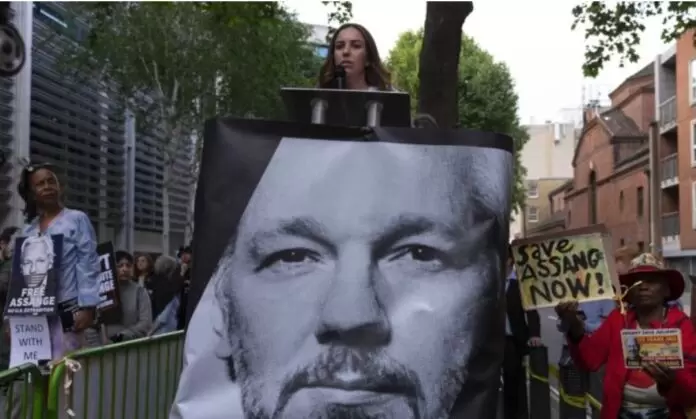Eesti Eest! Newspaper delivers curated news that cut through the censorship, mainstream bias, and institutional dominance that has left society divided and misinformed. The platform allows readers to access the news that matters, particularly when it is being ignored. Updated minute-by-minute with news coverage from a diversity of publications and topics. The website may display, include, or make available third-party content (including data, information, applications, and other products, services, and/or materials) or provide links to third-party websites or services, including through third-party advertising (“Third-Party Materials”). You acknowledge and agree that Eesti Eest! is not responsible for Third-Party Materials, including their accuracy, completeness, timeliness, validity, copyright compliance, legality, decency, quality, or any other aspect thereof. Eesti Eest does not assume and will not have any liability or responsibility to you or any other person or entity for any Third-Party Materials. Third-Party Materials and links thereto are provided solely as a convenience to you, and you access and use them entirely at your own risk and subject to such third parties’ terms and conditions. This Agreement is governed by and construed in accordance with the internal laws of the State of Delaware without giving effect to any choice or conflict of law provision or rule. Any legal suit, action, or proceeding arising out of or related to this Agreement shall be instituted exclusively in the federal courts of the United States or the courts of the State of Delaware. You waive any and all objections to the exercise of jurisdiction over you by such courts and to venue in such courts. The Content and Services are based in the state of Delaware in the United States and provided for access and use only by persons located in the United States. You acknowledge that you may not be able to access all or some of the Content and Services outside of the United States and that access thereto may not be legal by certain persons or in certain countries. If you access the Content and Services from outside the United States, you are responsible for compliance with local laws. All information on this site is intended for entertainment purposes only.
Contact us: [email protected]
Eesti Eest!








The United States has submitted the assurances required by the High Court in London at its most recent hearing of the Julian Assange extradition case: that he can rely on the First Amendment right to free speech as part of his defence, is not “prejudiced at trial” due to his Australian citizenship, and that there would be no new charges which could result in the death penalty being imposed.
The Court had said that, in the absence of those assurances, it would hear further submissions from the Wikileaks founder’s lawyers on why he should not be extradited.
However, with those guarantees in place before the deadline, which was April 16, it appears all possible grounds for the appeal have been exhausted. The Court is likely to rule in favour of the U.S. Justice Department.
If sent to the United States, Mr. Assange, 52, will face 18 charges, all but one under the Espionage Act, over WikiLeaks’ release of confidential U.S. military records and diplomatic cables.
First Amendment Defence at Whim of US Court
The document, seen by Reuters, says he “will have the ability to raise and seek to rely upon at trial the rights and protections given under the First Amendment of the Constitution of the United States” but notes that any decision on the “applicability of the First Amendment is exclusively within the purview of the U.S. courts.”
It also says “a sentence of death will neither be sought nor imposed” and adds, “These assurances are binding on any and all present or subsequent individuals to whom authority has been delegated to decide the matters.”
There will be a further court hearing in London on May 20, at which it is likely his lawyers will argue, as they have previously, that U.S. assurances are not “worth the paper they’re written on,” echoing similar criticism from human rights group Amnesty International.
Mr. Assange’s wife Stella said in a statement that the guarantees did not satisfy supporters’ concerns, describing them as “blatant weasel words.”
“The United States has issued a non-assurance in relation to the First Amendment, and a standard assurance in relation to the death penalty,” she said.
“The diplomatic note does nothing to relieve our family’s extreme distress about his future—his grim expectation of spending the rest of his life in isolation in U.S. prison for publishing award-winning journalism.”
Another glimmer of hope for Mr. Assange—who has spent more than 13 years involved in legal battles in the English courts since he was first arrested in November 2010—is President Joe Biden.
In April, President Biden told reporters “we’re considering it” when asked about a request from the Australian government to drop the prosecution.
It was not clear what influence, if any, the president could bring to bear on a criminal case, but the Wall Street Journal has also reported that discussions are underway about a potential plea bargaining deal.